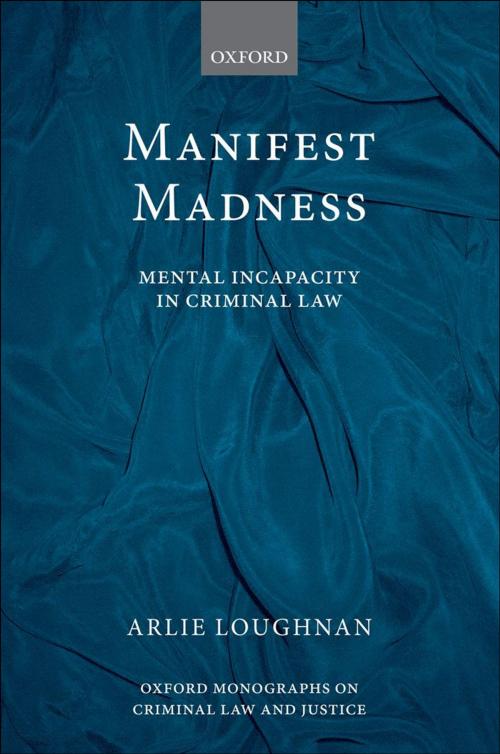Manifest Madness
Mental Incapacity in the Criminal Law
Nonfiction, Reference & Language, Law, Health & Well Being, Medical, Psychology| Author: | Arlie Loughnan | ISBN: | 9780191627552 |
| Publisher: | OUP Oxford | Publication: | April 19, 2012 |
| Imprint: | OUP Oxford | Language: | English |
| Author: | Arlie Loughnan |
| ISBN: | 9780191627552 |
| Publisher: | OUP Oxford |
| Publication: | April 19, 2012 |
| Imprint: | OUP Oxford |
| Language: | English |
This is an open access title available under the terms of a CC BY-NC-ND 3.0 International licence. It is free to read at Oxford Scholarship Online and offered as a free PDF download from OUP and selected open access locations. Whether it is a question of the age below which a child cannot be held liable for their actions, or the attribution of responsibility to defendants with mental illnesses, mental incapacity is a central concern for legal actors, policy makers, and legislators when it comes to crime and justice. Understanding mental incapacity in criminal law is notoriously difficult; it involves tracing overlapping and interlocking legal doctrines, current and past practices of evidence and proof, and also medical and social understandings of mental illness and incapacity. With its focus on the complex interaction of legal doctrines and practices relating to mental incapacity and knowledge - both expert and non-expert - of it, this book offers a fresh perspective on this topic. Bringing together previously disparate discussions on mental incapacity from law, psychology, and philosophy, this book provides a close study of this terrain of criminal law, analysing the development of mental incapacity doctrines through historical cases to the modern era. It maps the shifting boundaries around abnormality as constructed in law, arguing that the mental incapacity terrain has a distinct character - 'manifest madness'.
This is an open access title available under the terms of a CC BY-NC-ND 3.0 International licence. It is free to read at Oxford Scholarship Online and offered as a free PDF download from OUP and selected open access locations. Whether it is a question of the age below which a child cannot be held liable for their actions, or the attribution of responsibility to defendants with mental illnesses, mental incapacity is a central concern for legal actors, policy makers, and legislators when it comes to crime and justice. Understanding mental incapacity in criminal law is notoriously difficult; it involves tracing overlapping and interlocking legal doctrines, current and past practices of evidence and proof, and also medical and social understandings of mental illness and incapacity. With its focus on the complex interaction of legal doctrines and practices relating to mental incapacity and knowledge - both expert and non-expert - of it, this book offers a fresh perspective on this topic. Bringing together previously disparate discussions on mental incapacity from law, psychology, and philosophy, this book provides a close study of this terrain of criminal law, analysing the development of mental incapacity doctrines through historical cases to the modern era. It maps the shifting boundaries around abnormality as constructed in law, arguing that the mental incapacity terrain has a distinct character - 'manifest madness'.















